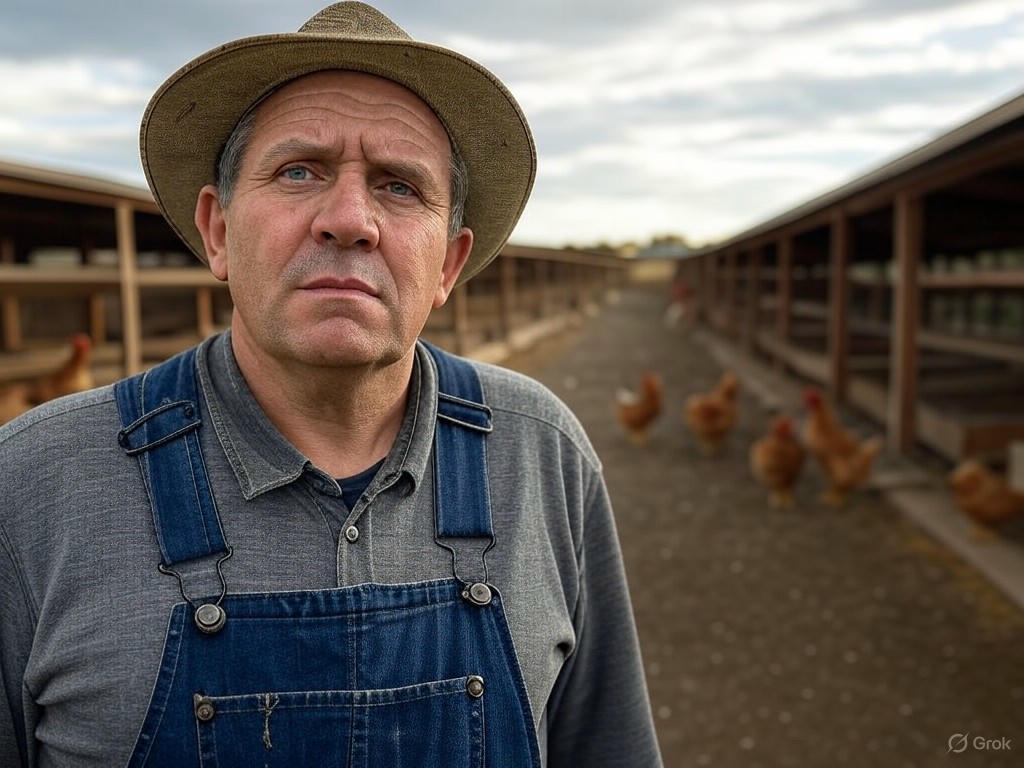Egg Crisis Looms as Massive Farm Suffers Devastating Loss
The American egg industry is reeling from a staggering blow as one of the nation’s largest egg farms has reported a catastrophic loss of nearly 90% of its chickens. This unprecedented event, stemming from a suspected outbreak of avian flu, has sent shockwaves through the agricultural sector and raised serious concerns about egg supply and pricing in the coming months. As consumers brace for potential shortages, the ripple effects of this disaster are already being felt across the country.
The farm, a key supplier to supermarkets and food manufacturers, was forced to cull millions of birds in an effort to contain the spread of the disease. This drastic measure, while necessary to protect public health and prevent further contamination, has left the farm’s operations in disarray. Experts warn that rebuilding the flock will take months, if not years, due to the time it takes to raise chickens to egg-laying maturity. In the meantime, the gap in production is likely to strain an already fragile supply chain. With demand for eggs remaining steady—used in everything from breakfast staples to baked goods—the shortfall could lead to empty shelves and skyrocketing prices.
This incident comes at a time when the egg industry is still recovering from previous disruptions, including earlier waves of avian flu and inflationary pressures on feed and labor costs. The timing couldn’t be worse for consumers, many of whom are already grappling with rising grocery bills. Analysts predict that egg prices, which had only recently stabilized after earlier spikes, could surge by as much as 30% in the near future. Small businesses, such as bakeries and diners, are particularly vulnerable, as they rely heavily on affordable eggs for their daily operations. Some owners have expressed fears of having to pass on the increased costs to customers or even scale back their offerings.
Beyond the immediate economic impact, this crisis highlights broader issues within the agricultural sector. The concentration of egg production in a handful of massive farms means that a single outbreak can have outsized consequences for the entire market. Advocates for sustainable farming argue that diversifying production through smaller, local farms could reduce such risks, though scaling up these alternatives poses its own challenges. Additionally, the incident underscores the urgent need for improved biosecurity measures to prevent future outbreaks. While vaccines for avian flu are in development, they are not yet widely available, leaving farms exposed to recurring threats.
As the industry scrambles to respond, consumers are left to navigate the uncertainty. Stockpiling eggs may seem like a solution, but experts caution against panic buying, which could exacerbate shortages. Instead, they suggest exploring egg alternatives for cooking and baking, such as plant-based substitutes. While the road to recovery will be long, this crisis serves as a stark reminder of the fragility of our food systems and the importance of resilience in the face of unexpected challenges.


